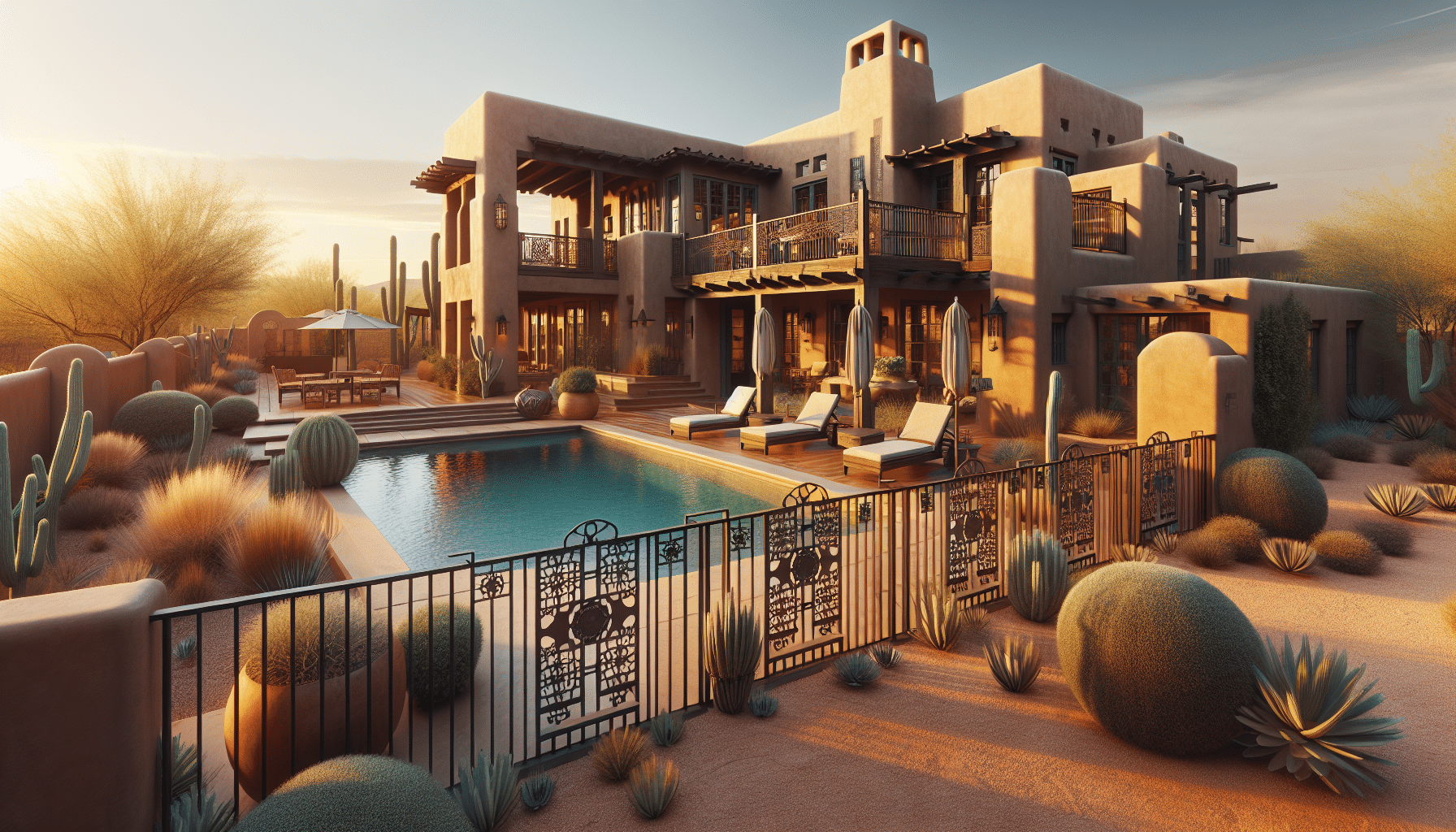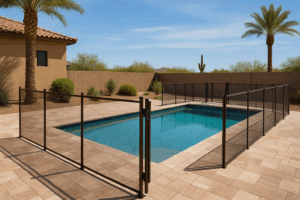Looking for the perfect pool barrier to keep your loved ones safe? At Pool Safety Fencing, we understand that choosing the right barrier can be overwhelming. This blog will make it easier for homeowners like you to find the ideal solution. Read on to discover all you need to know for making an informed decision.
Contents
Understanding the Importance of Pool Barriers
A pool is a fantastic addition to any backyard, offering endless enjoyment and a place to cool off during hot summer days. However, it also introduces a significant responsibility: ensuring the safety of all family members and visitors. Pool barriers act as the first line of defense, preventing accidental drownings and unauthorized access.
Without a proper pool barrier, children and pets are at risk of falling into the water unsupervised. This is why installing a secure and reliable pool fence is essential. It provides peace of mind, knowing that your pool area is safeguarded.
Types of Pool Barriers
Deciding on the right pool barrier begins with understanding the different types available. Each option has its own advantages and disadvantages, catering to various needs and preferences.
Common pool barriers include mesh fences, wrought iron fences, glass fences, and vinyl fences. Mesh fences are popular for their flexibility and ease of installation. Wrought iron fences offer durability and a classic look. Glass fences provide an unobstructed view of the pool while maintaining security. Vinyl fences are economical and require low maintenance.
Mesh Pool Fences
Mesh pool fences are a popular choice for many homeowners due to their versatility and ease of use. These fences feature a fine mesh material that is both strong and flexible, making them ideal for various pool shapes and sizes.
One of the major benefits of mesh pool fences is their ability to be easily removed and reinstalled. This makes them a convenient option for families who may want to temporarily take down the fence for a party or an event. Additionally, mesh pool fences are designed to be climb-resistant, adding an extra layer of safety.
Wrought Iron Pool Fences
Another attractive option is the wrought iron pool fence. Known for its classic appeal and robustness, a wrought iron fence can complement the aesthetic of any home.
Wrought iron fences are incredibly durable and can withstand harsh weather conditions. They offer the strength needed to keep your pool area secure, all while adding an elegant touch to your backyard. However, this type of fencing requires periodic maintenance to prevent rust and keep it in optimal condition.
Glass Pool Fences
If you’re looking for a modern, sleek-looking pool barrier, a glass pool fence might be the answer. These fences provide a clear view of the pool, allowing you to keep an eye on the area while maintaining the aesthetic appeal of your yard.
Glass pool fences are built using toughened glass panels that are resistant to breaking. They offer a minimalist design that doesn’t obstruct the view and blends seamlessly with most architectural styles. The downside is that they may require more frequent cleaning to maintain their clarity.
Vinyl Pool Fences
Vinyl pool fences offer a practical and cost-effective solution for homeowners on a budget. These fences are made from durable plastic materials designed to withstand the elements without requiring extensive maintenance.
One of the primary benefits of vinyl fencing is its low maintenance; it won’t rust, chip, or need repainting. It’s an excellent choice for those who want a simple, hassle-free pool barrier. However, it may not offer the same level of aesthetic appeal as glass or wrought iron options.
Choosing the Right Height
When considering pool barriers, height is a crucial factor. The height of your pool fence will directly impact its effectiveness in preventing children and pets from accessing the pool unsupervised.
- Standard Regulations: Most local regulations require pool fences to be at least 4 feet high. Make sure to check your local laws to ensure compliance.
- Family Needs: If you have particularly adventurous children or agile pets, consider opting for a taller fence for added safety.
- Visual Impact: The height of the fence will also affect the visual impact on your yard. Higher fences may obstruct views, so finding a balance between safety and aesthetics is important.
- Accessibility: Ensure that the height is comfortable for adults to open and close gates easily while remaining inaccessible to small children.
- Future Proofing: Consider how your family’s needs might change over time and choose a height that will be effective for years to come.
Material Considerations
The materials used in your pool fence play a significant role in its durability, maintenance requirements, and overall appearance. Each material offers unique benefits and considerations.
For example, metal fences such as wrought iron or aluminum can provide robust security but may require periodic maintenance to prevent rust. On the other hand, glass and vinyl fences offer low-maintenance options but may come at a higher initial cost. Consider the trade-offs of each material to decide what will work best for your specific needs.
Safety Features
When selecting a pool barrier, safety features should be your top priority. These features are designed to enhance the protective function of your fence.
- Self-Closing Gates: Gates that close automatically behind you reduce the risk of accidentally leaving the pool area accessible to children and pets.
- Childproof Latches: Ensure that the gate latches are placed out of reach of small children and are difficult for them to operate.
- Alarms: Some pool fences come with built-in alarms that sound when the gate is opened, providing an additional layer of security.
- Climb-Resistant Design: Look for fences that are designed to be difficult to climb. This includes vertical bars that are close together and the absence of horizontal elements that can be used as footholds.
- Clear Sightlines: Fences that allow you to see through to the pool area make it easier to monitor activity and ensure safety.
Ease of Installation
Installing a pool fence can be a significant project, so it’s essential to consider how complex the installation process will be. Some homeowners may opt for professional installation, while others might prefer a DIY option.
Mesh pool fences, for instance, are known for their simple installation process, which can often be completed by the homeowner. Conversely, wrought iron and glass fences typically require professional installation due to their weight and the need for precise alignment. Assess your comfort level with installation when choosing a fence type.
Budget Considerations
It’s also important to consider your budget when selecting a pool barrier. The cost of pool fences can vary widely based on the material, height, and additional features.
While it might be tempting to opt for the cheapest option, it’s crucial to balance cost with the quality and effectiveness of the barrier. Investing in a high-quality, durable fence will provide long-term peace of mind and potentially save money on repairs or replacements down the line.
Consider setting a budget that includes not only the initial cost of the fence but also any ongoing maintenance expenses. This will help you make an informed decision that suits both your financial and safety needs.
Conclusion
When it comes to choosing the right pool barrier for your home, there are many factors to consider, from materials and safety features to budget and installation ease. If you need help making the right choice, feel free to contact us by phone at 480-771-8026 or request a free quote.




